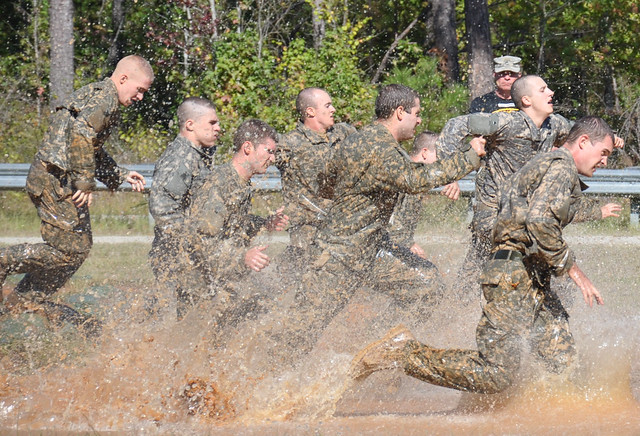Auburn’s Warrior Research Center offers collaboration between researchers, military
Article body
When it comes to ensuring that military and tactical athletes are prepared mentally and physically, Auburn University’s Warrior Research Center is at the forefront of working to improve performance, resiliency and health and wellness.
The center serves as a collaboration between researchers, the military, government, industry and tactical athletes to further develop and implement new knowledge in human factors. In late October, the center’s efforts will be on display at its Tactical Athlete Summit, where military professionals and athletes will come from across the country to see the latest research projects designed to help maximize their performance.
“Preparation of our soldiers and tactical athletes is at the heart of what we do every day,” said JoEllen Sefton, director of the Warrior Research Center. “We provide leadership through research, education, training and implementation to better serve our warriors, veterans, tactical athletes, families and the community.”
Housed in the College of Education’s School of Kinesiology, the Warrior Research Center is a central contact point for networking and collaboration among the military, public safety divisions, industry and academia to achieve research-driven results.
The center has six studies currently in the works: treatment of concussion symptoms, treatment of stress fractures, improving quality of life for lower-limb prosthetics users, two firefighter and EMT studies and several whole-body vibration studies. A heat study, which follows up on a past study that investigated how to help firefighters better recover after battling a blaze, is currently on a COVID-19 hold.
The previous study examined how a firefighter’s exposure to heat, combined with exercise, could affect balance and lead to increased risk of lower extremity musculoskeletal injuries, such as ankle sprains and ACL tears.
In October, the center once again will bring together top military professionals and tactical athletes for its annual Tactical Athlete Summit that showcases research in the field and new projects related to soldier training, injury prevention, medical treatment/rehabilitation, equipment/vehicle impact and more. Set for Oct. 27-28, the conference is the intersection of health, technology and innovation for our U.S. Armed Forces. Industry, academia and government share novel ideas and report key findings to optimize tactical athlete performance.
The conference—which will be held at The Hotel at Auburn University and Dixon Conference Center—builds on the Warrior Research Center’s commitment to fostering partnerships between researchers, the military and tactical athletes.
Keynote speakers at the conference will be: Sgt. Maj. Troy E. Black, 19th Sergeant Major of the Marine Corps; Lt. Gen. Ronald P. Clark, commander, U.S. Army Central Command; Col. Kevin A. Bigelman, director for the Holistic Health and Fitness System at the U.S. Army Training and Doctrine Command’s Center for Initial Military Training, Joint Base Langley-Eustis, Virginia; and Capt. Michele A. Kane, Captain, Nurse Corps, United States Navy.
Researchers and industry leaders from across the country will present posters, hold panel discussions and share study findings that are applicable to tactical athletes. More information on the Warrior Research Center is available online.
Related Media
Media interested in this story can contact Communications Director Preston Sparks at (334) 844-9999 or preston.sparks@auburn.edu.
Auburn University is a nationally ranked land grant institution recognized for its commitment to world-class scholarship, interdisciplinary research with an elite, top-tier Carnegie R1 classification, life-changing outreach with Carnegie’s Community Engagement designation and an undergraduate education experience second to none. Auburn is home to more than 30,000 students, and its faculty and research partners collaborate to develop and deliver meaningful scholarship, science and technology-based advancements that meet pressing regional, national and global needs. Auburn’s commitment to active student engagement, professional success and public/private partnership drives a growing reputation for outreach and extension that delivers broad economic, health and societal impact.







